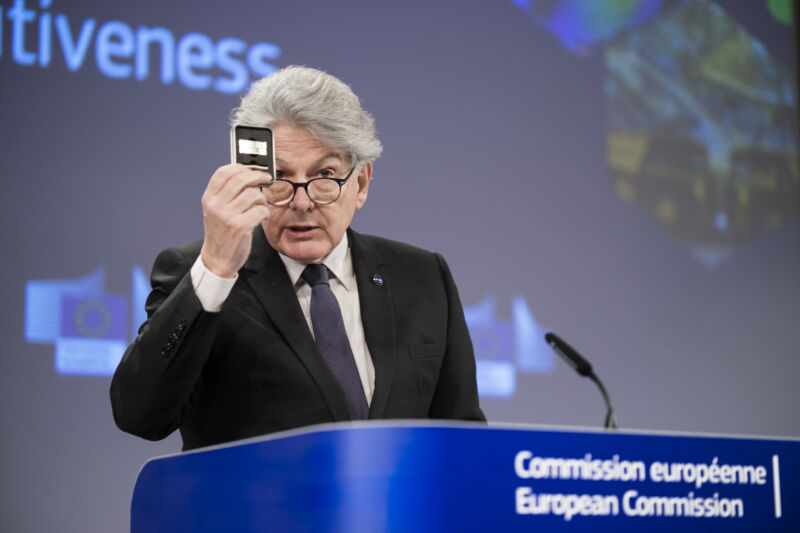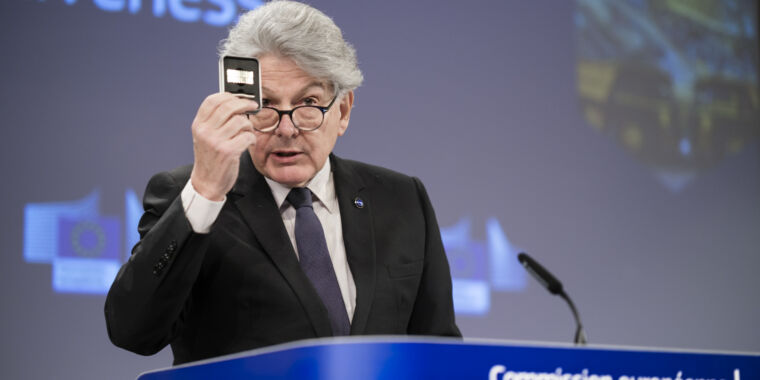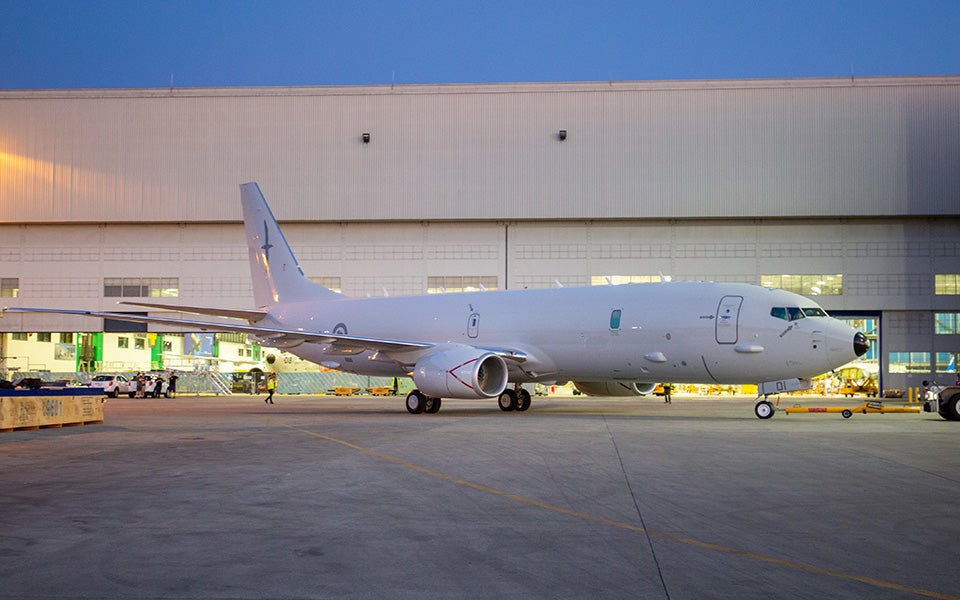
Thierry Monasse/Getty Images
A consortium of nearly every major European satellite company announced Tuesday that it plans to bid for a proposed satellite constellation to offer global communications. Essentially, such a constellation would supply the European Union with connectivity from low-Earth orbit just like what SpaceX’s Starlink offers.
The bid, which incorporates large players comparable to Airbus Defence and Space, Eutelsat, SES, and Thales Alenia Space, is available in response to a request by the European Union for assist in constructing a sovereign constellation to offer secure communications for presidency services, including military applications.
European Union Commissioner Thierry Breton announced the continent’s plans for this constellation—often called Infrastructure for Resilience, Interconnectivity and Security by Satellite, or IRIS²—last November. The European Union will provide 2.4 billion euro, with additional contributions expected from the European Space Agency and personal investments.
“IRIS² establishes space as a vector of our European autonomy, a vector of connectivity and a vector of resilience,” Breton said on the time. “It heightens Europe’s role as a real space power. With a transparent ambition and sense of direction.”
Putting the band together
The partnership announced Tuesday, which also includes Deutsche Telekom, Hispasat, OHB, Orange, Hisdesat, and Telespazio, will aim to create a state-of-the-art satellite constellation based on a multi-orbit architecture. Even though it is top-heavy with established industry players, the partnership said it should encourage startups within the European space sector to affix the coalition. That is in response to a desire by Breton to broaden the European business space sector.
At present, Europe estimates the price of this constellation at about 6 billion euro and desires it to be ready to offer global coverage by the 12 months 2027. Each the budget and the timeline for this project are likely very ambitious, given the quantity of coordination needed and the unlikelihood that Europe’s Ariane 6 rocket may have the spare launch capability to get a whole bunch of satellites into low-Earth orbit starting within the mid-2020s. The Ariane 6 rocket won’t debut until 2024 on the earliest.
Nonetheless, European officials felt as if that they had to make this move. Fundamentally, the continent faced a difficult selection. Europe seeks to stay a significant player in spaceflight activities, which increasingly include satellite-based communications. Nonetheless, European officials didn’t need to be beholden to Elon Musk and his Starlink constellation, which already provides secure global communications like those to be delivered by IRIS². European government leaders are already wary of counting on SpaceX’s Falcon 9 rocket for the launch of a few of its satellites. Officials were similarly disposed toward Amazon’s Project Kuiper constellation.
China can also be developing its own megaconstellation, but Europe clearly didn’t need to hand over its secure communications to a worldwide rival with questionable intent. That left OneWeb. But this network is partially owned by the UK—which very publicly exited the European Union just a few years ago—and will not have the capability to fulfill all of Europe’s needs.
Nimbleness needed
And so European officials felt the necessity to strike out on their very own. Actually European firms have quite a lot of expertise in constructing satellites, and the European Space Agency’s experience in developing the Galileo and Copernicus constellations will aid in plans moving forward.
The true challenge is coordinating all of this. There are serious questions on how all of those big partners can work together and whether the bureaucracy of the European government can get this project moving forward expeditiously toward the 2027 goal date.
By means of comparison, SpaceX launched its first two test satellites in February 2018. From that point it took about 4 years for SpaceX to start rolling out global coverage on its Starlink network. But SpaceX had some major benefits in that it had zero bureaucracy—for higher or worse, decisions are made by one person, Musk—ample funding and a willingness to spend private capital, and the world’s only reusable, high-cadence rocket.
All of those will probably be challenges for Europe to beat.







